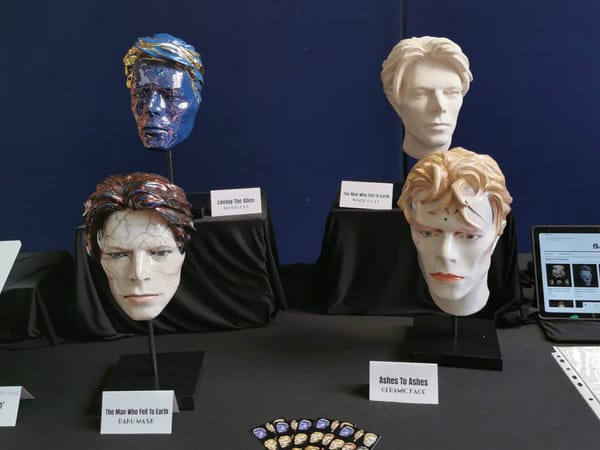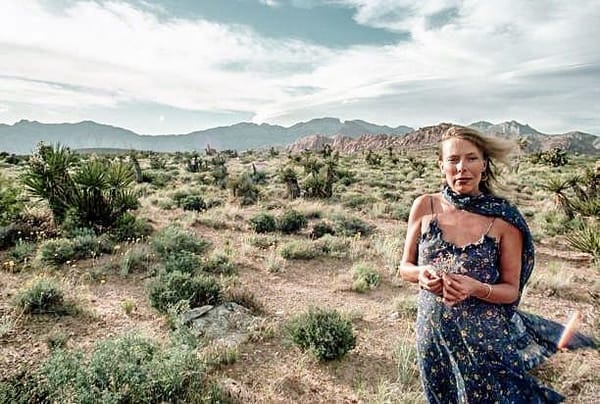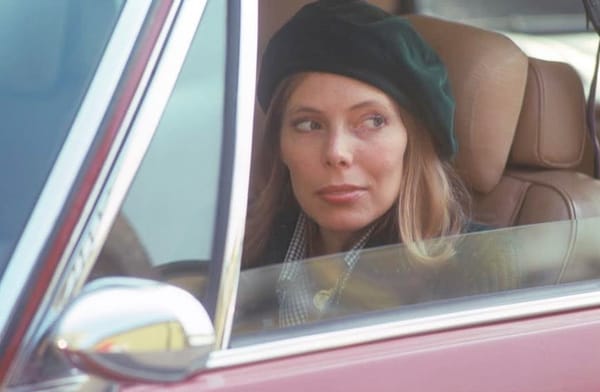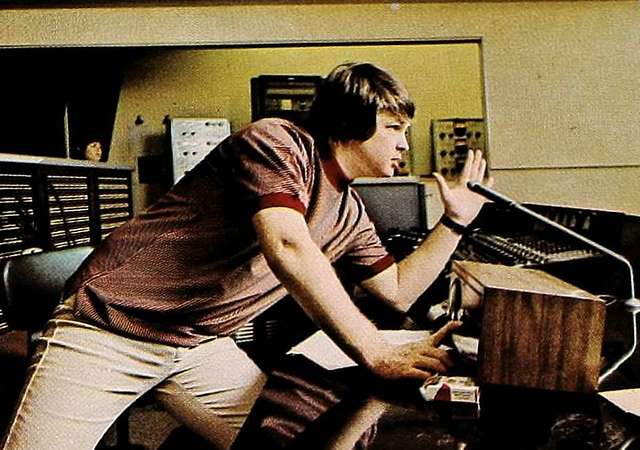English disease
“Morbid Symptoms” would have made a pretty good title for a Suede b-side. The best of their music still speaks to England's lingering existential hangover.
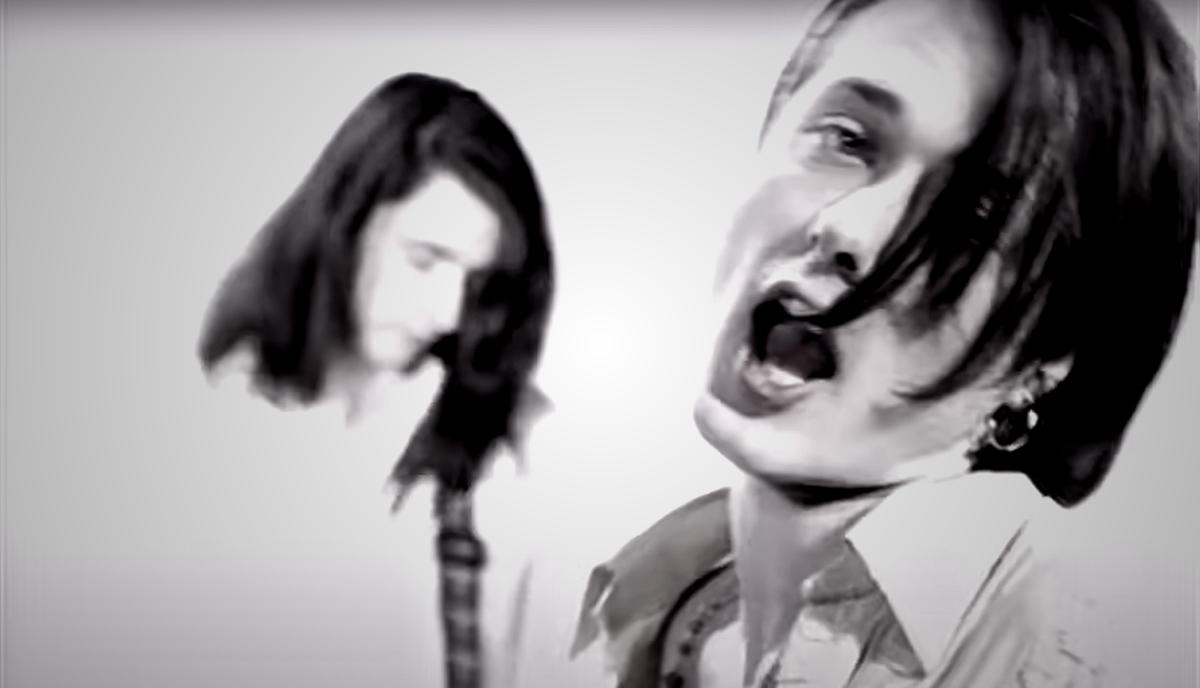
Nothing captures the spirit of Britain in 1992 as vividly as Patrick Keiller’s psychogeotravelogue, London. Watching with dawning horror the results of the general election come through on the morning of 10 April, the narrator grimly concludes:
It seemed there was no longer anything a Conservative government could do to cause it to be voted out of office. Robinson began to consider what the result would mean for him. His flat would continue to deteriorate, and his rent increase. He would drink more and less well, he would be ill more often, he would die sooner. For the old, or anyone with children, it would be much worse.
It felt like a turning-point in history, where history had failed to turn. Only a year earlier records like Loveless, Screamadelica and Blue Lines, in their own ways, had seemed to embody a radical post-Thatcher, post-Berlin Wall energy and optimism in British culture: indie, rave and homegrown hip hop evolving and intertwining into rich, strange, potent new formations. 1992, by contrast felt like a revanchist cultural restoration of the 1980s: Queen, Wet Wet Wet, Right Said Fred, Simply Red and Whitney Houston stamping on the face of Top of the Pops - forever.
“The crisis consists precisely in the fact that the old is dying and the new cannot be born,” wrote Antonio Gramsci in 1930. “In this interregnum a great variety of morbid symptoms appear.” Morbid symptoms in British culture around this time might include: Mike Leigh’s Naked, Windsor Castle in flames, the early recordings of PJ Harvey, the cones hotline, Black Wednesday, Morrissey’s Your Arsenal, John Birt’s arrival at the BBC, the death of Angela Carter, “squidgygate”, the foundation of the FA Premier League and the birth of BritPop.
BritPop is now commonly associated with the rise of New Labour, Cool Britannia, all the mid-90s cosmetic rebrands, flimsy as a PFI school building, now fallen into ruin. But it’s here, in the pallid squalor of the Major regime, that it is born. Barely two weeks after the general election result, Melody Maker shuffled a scruffy, befringed band ahead of EMF and Carter USM onto the front cover and proclaimed them “Suede: the best new band in Britain”.
In his recent memoir, Coal Black Mornings, Brett Anderson writes nicely of this period:
It felt like a hangover of the 80s [...] a bleak no-man’s land of flimsy phoneboxes and ugly logos and desperate men in cheap suits. Nothing seemed to work properly and everywhere was painted the same landlord magnolia.
Is this why the best of Suede’s music, more than so many of their supposed contemporaries, still retains its urgency, hysteria and pheromonal freakiness? “Morbid Symptoms” would have made a pretty good title for a Suede b-side, after all, and speaks implicitly to the terminal existential hangover still facing England.
It’s all there in the phenomenal lurch, shudder, shriek and swagger of ‘The Drowners’, released in May 1992 and one of the greatest ever debut singles by a British pop group. If you had one gimlet eye on the scuffling London indie scene in the late 80s you might have already been dimly aware of Suede. In 1990 ‘Wonderful Sometimes’, a polite Sundays-b-side confection of strum and shimmy, had won the Gary Crowley GLR demo clash five weeks in a row. “It sounded like music made by virgins,” Anderson now says, not inaccurately. How on earth did this band of fey wastrels transform themselves into the defining British band of the era?
Suede’s long gestation was induced to strange fruition by a perfectly potent cocktail of psycho-social-cultural poisons. For all that it reinforces the arrival of the damned inevitable BritPop biopic, it’s hard to overstate the impact of Justine Frischmann’s decision to leave Brett and the band for Damon Albarn and Elastica. Kieron Gillen and Jamie McKelvie's lurid comic book phantasmagoria, Rue Britannia, has much fun with the idea of a literal goddess Britannia, manifesting, inspiring and animating the whole Camden scene before being interred beneath Primrose Hill. And it’s hard not to see Justine, in the febrile collective imagination, as muse-trophy for a generation of fucked up, ambitious neurotic boy outsiders - a physical embodiment of the cultural capital they all craved. Her departure left Anderson feeling, floridly, like “George Bone from Hangover Square: excluded and rejected, forever on the fringe of acceptance, the soft, gossamer, world of the feminine cruelly denied him”, and hurt him into songs of new urgency, desperation and ambition.
The departure unleashed Bernard Butler too. From the start it was clear he was a guitarist of rare facility, but Johnny Marr was still an overwhelming influence. One of Justine’s last gestures as a member of the band was a loan to help Bernard buy a 1980 heritage Les Paul he coveted, and you sense that it was this instrument, as much the new freedom to play all the guitar parts himself, that offered a way out of the impasse. Even on ‘Shoplifters’, his crunchiest, glammest moment, there was a virtuoso gentleness and melancholy about Marr’s guitar parts; the Gibson, paired with a Vox amp, and played almost like a kick drum and snare, enabled Butler to channel a kind of seedy brutality. Indeed on 'The Drowners', the crucial, breakthrough track, the band resembles no one so much as Mark 1 Adam and the Ants and tracks like ‘Whip In My Valise’.
But though the creative chemistry had been unlocked, the Suede moment took a while to arrive. The band were playing the London toilet circuit, with Justine still nominally in the band, throughout 1991 with a set comprising substantial parts of the debut album, without causing any great waves. A demo recorded at Rocking Horse studios in October actually surpasses the album - particularly on the recording of ‘Moving’.
It took a media tailwind to propel them into the Big Time. By December 1991, after Justine’s final gig with the band, they were beginning to pick up intrigued reviews in both NME and Melody Maker. At this point the traditional weekly inkie music press had been augmented by monthlies - first Q, and then in 1990 both Select and Vox. At the same time the mainstream press were becoming more attuned to what was happening in the indie underground, and the first inklings of the changes at Radio 1 were apparent. There was sense that, like Soviet commissars unprepared for the end of empire, media taste makers had been taken by surprise by successive scenes of rave, baggy and grunge, and were determined to capitalise on future shifts more effectively.
It was an increasingly febrile media space that was gagging for Suede. In their own ways both the House of Love and the Stone Roses, despite similar acclaim and support had failed to launch. The similarly combustible Suede managed to stay together for over a year, from Melody Maker cover, through top 10 single and number one album and so helped foster a media ecosystem and echochamber that cohered through BritPop and beyond. You could argue that Suede’s appearance at the BRIT awards in February 1993, Brett flashing his nipples and slapping his arse in front of a bemused audience of 80s industry gargoyles, was the official death of indie, and the first slouching babysteps of the louche BritPop beast that had been born one year before.
It helped that the material was simply sensational. From 'The Drowners' in May 1992 through to 'Stay Together' in February 2014, Butler and Anderson composed what increasingly seems like the last great singles run in British pop. The album, when it arrived in March 1993, was almost beside the point. Across five singles and sundry b-sides they conjured a shabbily magnificent Suedeworld - all crumbling council houses, flying bicycles, high wires, low lifes, suburban dreams and metropolitan sleaze - that undoubtedly bore the traces of obsessive listening to Bowie and the Smiths, but was somehow all their own work. It was the seedy, obsessive quotidian of most bands in London in the 90s, but never expressed so beautifully or grandly. The journey from the squalid squat of ‘The Drowners’ to the high-rise suicide of ‘Stay Together' is a fast-forward first draft of the BritPop biopic, and it now seems inevitable that the band should split before the scene they seeded could reach its imperial apogee.
It’s often been said that Suede simply didn’t have the resources to flourish beyond a couple of albums. It’s almost too easy to analyse the band as an amalgam of Bowie and Morrissey. Yet those were two of the most studious, obsessive artists in the history of British culture, drawing upon a perverse, esoteric knowledge of music, art, literature, film, to invent and replenish themselves. ‘Stay Together’, was irresistible partly for its epic, intense self indulgence and self parody. But once Anderson connected the dots between glam and glum, he didn’t really have anywhere else to go, could only repeat himself, with diminishing returns.
But possibly more importantly, from the very start Bowie had a superhuman/alien obsessive resolve that steered him through the the snowstorm of mid-1970s decadence to achieve successive creative peaks. Morrissey and Marr had the vocational integrity to navigate industry indifference while creating their own matchless body of work. The Butler/Anderson partnership wasn’t built on the most stable foundations and fractured almost immediately.
It’s customary these days to say that Dog Man Star, Suede’s absurd Gormenghast of a second album, released in October 2014 is their real masterpiece. But, really, you only need the full 9 minute version of ‘Stay Together’ to comfortably get all the cinemascope sprawl and nuclear doggerel you might ever need. In their first flush of creativity Suede had drawn upon lived experience in home counties boxed bedrooms and among the escalator detritus of the London underground - there was genuine proletarian hysteria, lust and desperation fuelling the songs.
By their second album they already seemed sequestered in the cathedral of their own cheap myths, indifferent passengers in the airless taxis they might have once ended up driving. It was an album written in mutual isolation, and it sounds that way: Anderson and Butler heading as far and as fast in opposite directions as possible. It’s only really on ‘The Wild Ones’ that they sound in tune with one another and hint at possible futures for the band. In a way it’s the best epitaph for the partnership - a hymn to the terrible potency not of heroin, crack or the nuclear sky, but rather cheap music, heard on a transistor radio or through a neighbour’s wall, dissolving all the day’s debts.
It’s testament to Anderson’s tenacity, and the appalling horror involved in not only losing the finest guitarist of his generation, but then observing the very public coronation of his arch nemesis and and ex-girlfriend as the pearly king and queen of Cool Britannia, that Suede survived and even prospered to produce 1996’s Coming Up. 'Trash', 'Beautiful Ones' and 'Lazy' still raise a smile, but, playing catch-up with the zeitgest, it feels like they were composing theme tunes to the BritPop cartoon (after the Archies and the Monkees: the Junkeez). What they lived through and transformed into Mike Leigh tragedy now replayed as musical farce. But maybe this isn’t so different to what Lou Reed signed up for when he tuned into the times and recorded Transformer, great in its own way as anything he recorded with the Velvet Underground.
“Seediness has a very deep appeal,” wrote Graham Greene in 1936. “The sky‑signs in Leicester Square, the tarts in Bond Street, the smell of cooking greens off Tottenham Court Road, the motor salesmen in Great Portland Street.” Just as Greeneland has become a permanent county in the gazetteer of the English imagination, its tempting to say that Suedeland is heading the same way. Following their late 90s slide nadir, the band now seem empowered and emboldened to map the catalogue towns and cellophane bouquets, apparently indefinitely. And for all its tacky familiarity, it feels like a premonition of the country’s future as much as its past, and as such much more resonant than almost any other product of BritPop short of Pulp. As Brett sang all the way back in 1994: “You might live in a screen kiss, it's a glamorous dream / Or belong to a world that's gone, it's the English disease”.

